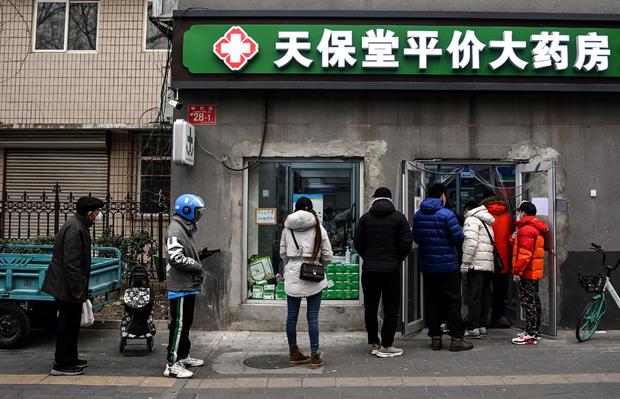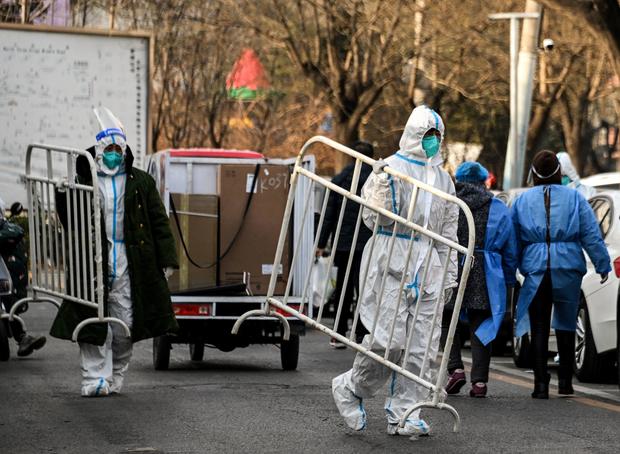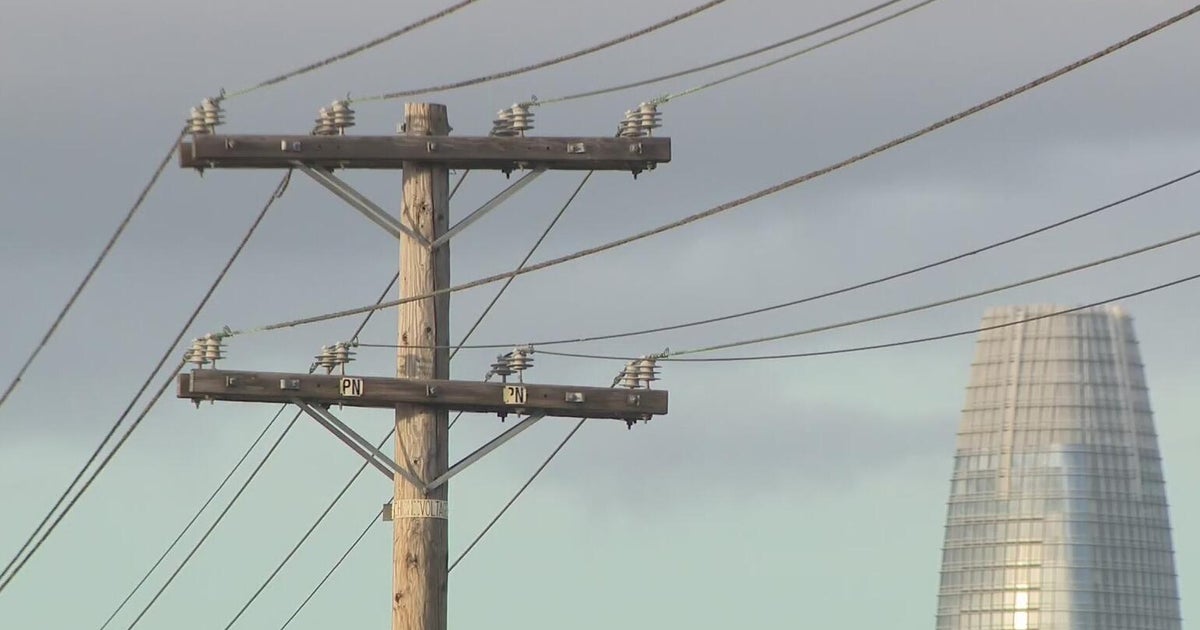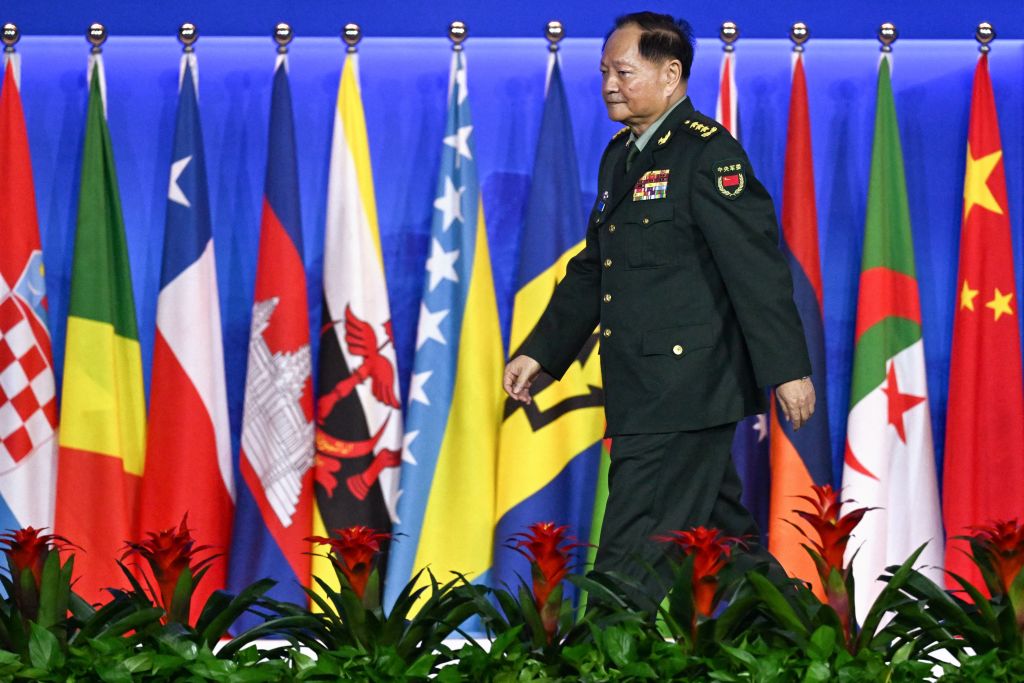China's strict zero-COVID policy may be gone, but it has been replaced by chaos, confusion and risk.
Beijing — China may be pivoting away from its strict zero-COVID measures, but you'd never know it in Beijing. Everyone in the capital is confused.
The city of more than 21 million people doesn't have a coherent plan, government computer systems are overwhelmed and COVID help-line staff reached on the phone aren't sure how this brave new world will function.
It's no surprise residents are staying home to avoid breaking rules that haven't yet been spelled out.
Two full days after the government announced it was relaxing the years-old zero-COVID policy, Beijing's streets were as quiet Friday as they were during the darkest days of mass lockdowns.
Only the drugstores are busy, serving customers flocking to bulk-buy over the counter flu medicines and traditional Chinese remedies.
Everyone is bracing for a so-called exit-wave — a surge in cases like the one that swept across Hong Kong when its government suddenly relaxed COVID restrictions. The region's omicron-fuelled fifth wave, which peaked in March this year, caused nearly 6,000 deaths. A whopping 96% of those who died were over 60.
People in mainland China now fear such a lethal wave, especially as officials are sounding the alarm. At an online seminar Tuesday, a senior health adviser predicted that, ultimately, between 80% and 90% of the country's vast population may catch the coronavirus at least once now that the measures have been eased, and as many as 60% could catch it in the first post-zero-COVID policy wave. That's almost a billion people.
The implications are dire. Airfinity, a British health data analytics firm, predicts that lifting the zero-COVID measures could result in between 167 million and 279 million new cases, and between 1.3 million and 2.1 million deaths over the next 83 days alone.
In spite of what will certainly be a rocky road ahead, Chinese state media is issuing a full triumphalist cry.
"We have survived the toughest moments!" state news agency Xinhua trumpeted Friday. "In the past three years, the virus has weakened while we grew stronger."
The U-turn in state propaganda mirrors the sudden about-face in its policy. Just a few weeks ago, the official rhetoric was still hailing the zero-COVID policy as "scientific," "effective" and bound to "pass the test of history."
In Beijing though, people aren't worried about the official narrative's stunning reversal. They're too busy trying to arm themselves against what will be the first winter with the coronavirus effectively left to circulate freely.
Cold and fever medicines, along with antigen test kits, sold out quickly online. Desperate residents now stand outside drugstores hoping to score essential supplies as pharmacies ration what they have and, in some cases, limit purchases to only one package per person.
China's new COVID guidelines were announced by the National Health Commission, but they leave a lot of room for local interpretation. Cities, for instance, are allowed to administer their own COVID-controls at the local level.
In Beijing, that's meant chaos and half measures.
For example, to get into bars and restaurants, Beijingers still must show a negative PCR test no more than 48 hours old. The trouble is there's now hardly anywhere to get tested. Many of the testing stations that dotted the city's streets have simply shut down and been removed.
There are some still functioning, but people now must travel for miles, to other districts of the sprawling city in many cases, to find one, and they're overwhelmed. That means they aren't sending test results to the government monitoring system efficiently, which in turn isn't sending the updated results to anyone's phones. And no updated test results on your phone means no dining out, no taxi rides, no meeting friends in bars and no trips to the gym.
No wonder the city is so quiet.
If the mess in Beijing is anything to go by, China's route out of the pandemic will be chaotic, costly, and stressful. In the worst case scenario, it may also be shockingly lethal, which could tarnish the credibility of the Communist Party itself for years to come.





